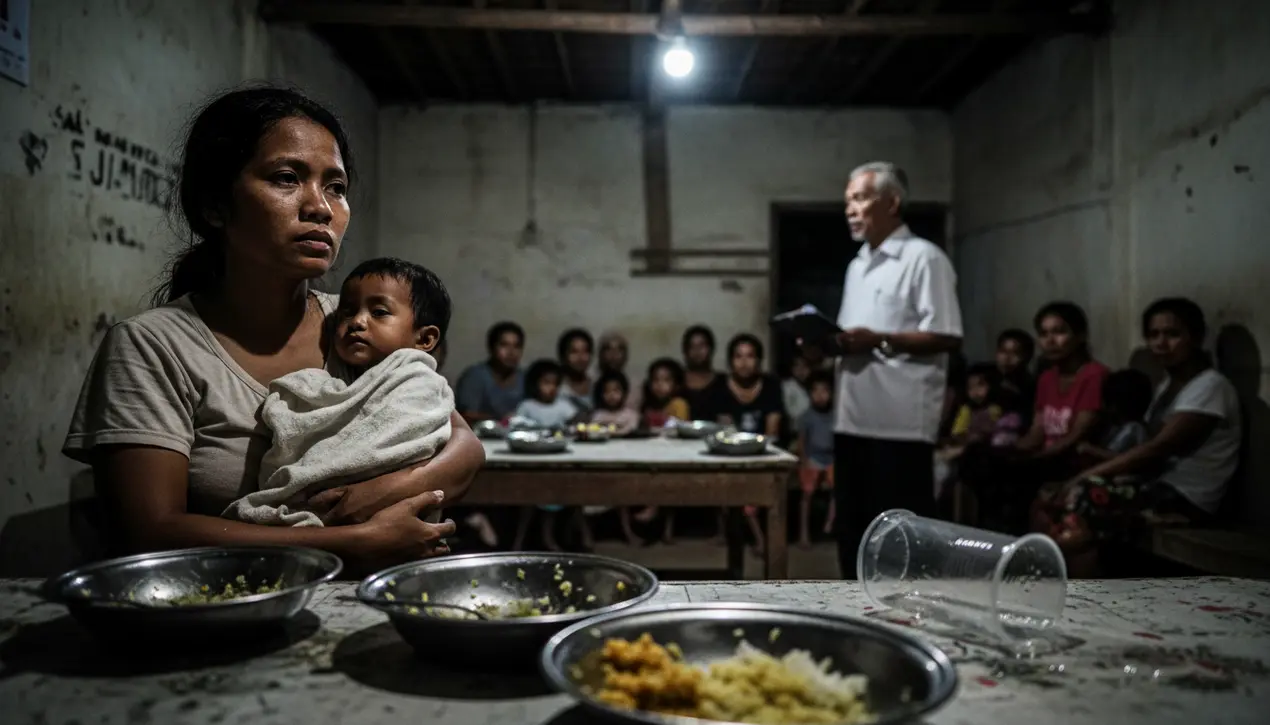
Politicsgovernments & cabinetsPolicy Agendas
Indonesia's free meal plan linked to food poisoning cases.
AN
Anna Wright
4 hours ago7 min read1 comments
The Indonesian government’s ambitious free meal program, a cornerstone of President Prabowo Subianto’s social policy agenda, is facing a severe public health reckoning as official testimony revealed it has been linked to nearly half of the nation's food poisoning cases this year. This flagship billion-dollar scheme, launched with great fanfare in January to combat the persistent specter of malnutrition, has instead sickened thousands, casting a long shadow over its humanitarian intentions and igniting a fierce debate over systemic failures in implementation and oversight.Dadan Hindayana, the head of the overseeing BGN agency, delivered this sobering assessment to lawmakers, a moment that laid bare the tragic gap between political promise and on-the-ground reality. For the families who saw these meals as a lifeline, the situation is a profound betrayal, a case where a policy designed to nurture the most vulnerable has instead inflicted harm, raising urgent questions about the patriarchal structures of power that often prioritize grand announcements over the meticulous, unglamorous work of ensuring safety and equity.The crisis echoes historical patterns where well-intentioned social welfare programs, from poorly managed food distribution in other developing nations to flawed school lunch initiatives elsewhere, have foundered on the rocks of logistical haste and inadequate hygiene protocols, leaving the very people they were meant to empower more exposed and vulnerable. Critics, now vocal in their calls for an immediate suspension, are not merely pointing to contaminated ingredients but to a deeper malady: a rush to rollout that potentially sidelined critical infrastructure checks, supplier vetting, and community-level health worker training.One can draw a parallel to global discussions at UN forums on food security, where the consensus consistently emphasizes that access to food is meaningless without guarantees of its safety; this incident in Indonesia serves as a stark, real-world lesson in that very principle. The political ramifications for President Prabowo are significant, as this program was central to his political brand and electoral promises; its failure threatens to erode public trust not just in this single initiative, but in the government’s capacity to execute complex, large-scale social interventions.The narrative now unfolding is not just one of microbial contamination, but of a leadership challenge—will the response be one of transparent investigation, accountability, and a redesigned, community-centric approach, or will it descend into deflection and blame-shifting? The women in these communities, often the primary caregivers, are now burdened with a new anxiety, watching their children for signs of illness from a meal that was supposed to bring health, not harm. This is more than a policy failure; it is a human story of broken trust, and its resolution will require not just technical fixes but a renewed commitment to governance that listens, adapts, and truly serves its people, ensuring that the right to food is inseparable from the right to safety and dignity.
#featured
#Indonesia
#free meal program
#food poisoning
#Prabowo Subianto
#malnutrition
#government initiative
#public health
Stay Informed. Act Smarter.
Get weekly highlights, major headlines, and expert insights — then put your knowledge to work in our live prediction markets.
Comments
Loading comments...
© 2025 Outpoll Service LTD. All rights reserved.